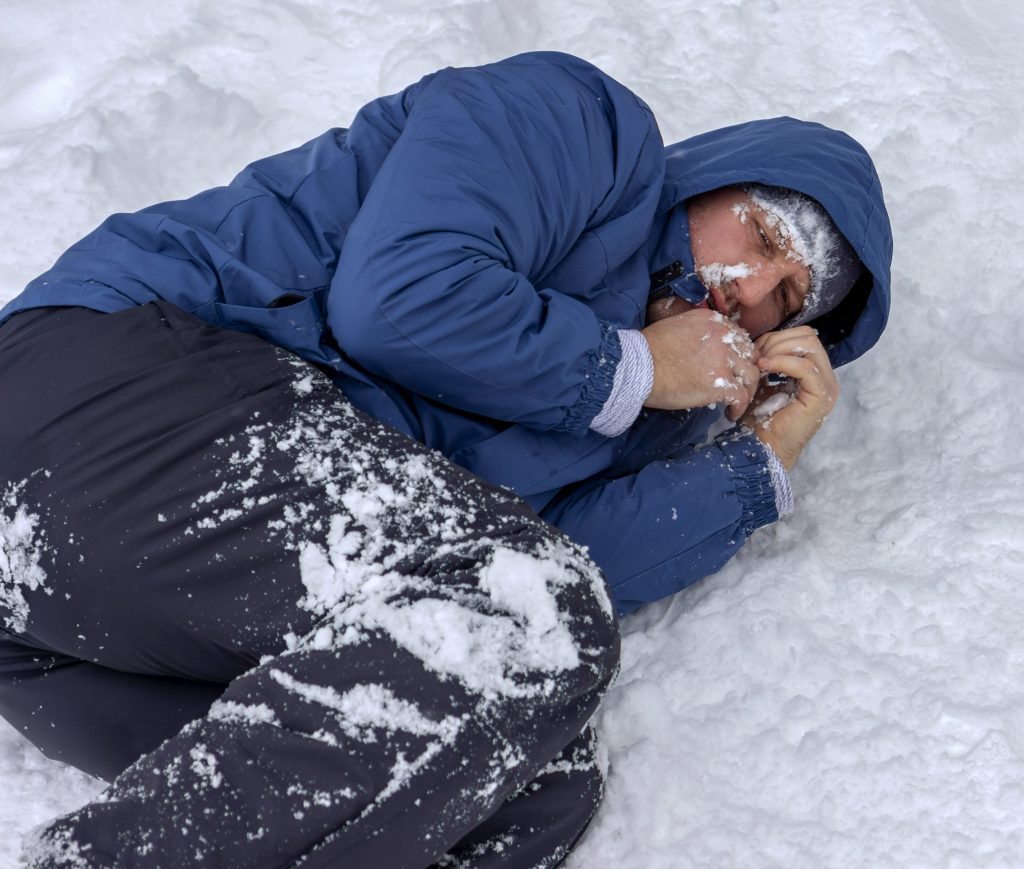The core temperature of the human body is classed as normal at 37˚C. The human body strives for homeostasis (balance of physiological processes) and will strive to maintain a temperature between 35.8–38.2˚C.
The body temperature can change over a 24hr period by 1˚C. The lowest temperature tends to be in the early morning with the highest in the afternoon.
A part of the brain called the hypothalamus is responsible for thermoregulation. The hypothalamus receives information from peripheral and central thermoreceptors. The messages arrive from different places because the body consists of areas with different temperatures. These are:
- The organs at the core of the body
- The shell or skin
The job of the hypothalamus is to control the amount of blood to the shell or skin, which in turn controls the amount of heat generated and lost.
Hypothermia is defined as a core temperature below 35˚C. Hypothermia can be classed as primary or secondary.
Primary hypothermia = Environmental exposure
Secondary hypothermia = Medical illness lowering the core temperature
The speed of onset can vary:
Acute Hypothermia (Immersion Hypothermia)
This occurs when a person loses heat very rapidly, such as falling into water and can be associated with drowning. Acute hypothermia may also occur in a snow avalanche where asphyxia may also be present.
Subacute hypothermia (Exhaustion Hypothermia)
This can easily occur in a person in the outdoors in moderately cold weather who becomes exhausted and is unable to generate enough heat to keep themselves warm.
There are four main ways that heat can be lost from the body:
| Conduction | Heat conducted from the body into the cold ground |
| Convection | Warm air being removed from next to the skin by a breeze |
| Evaporation | Sweat evaporation from the skin, warm moist air breathed out |
| Radiation | Heat radiating from head and thighs |
Chronic Hypothermia
In chronic hypothermia, heat loss occurs slowly, often over days or longer. This is common in the older person living in an inadequately heated house, or a person who is a rough sleeper. it can also be due to a fall at home in the elderly, or a stroke both resulting in being left on the ground.





